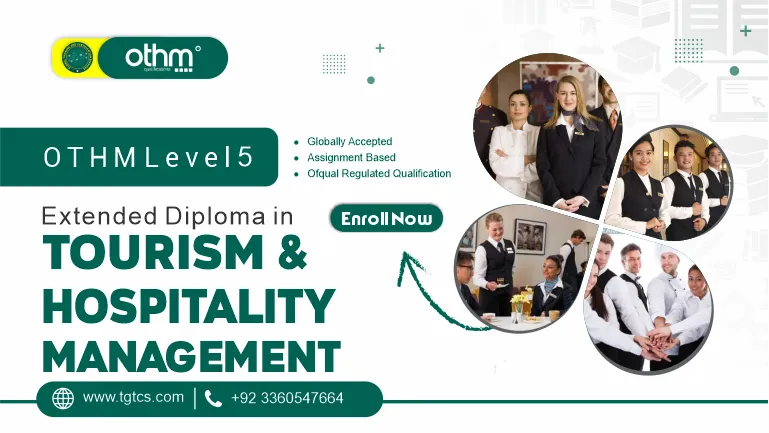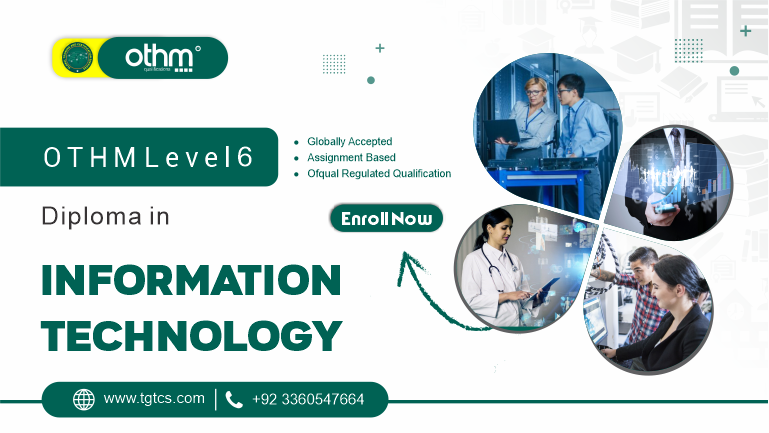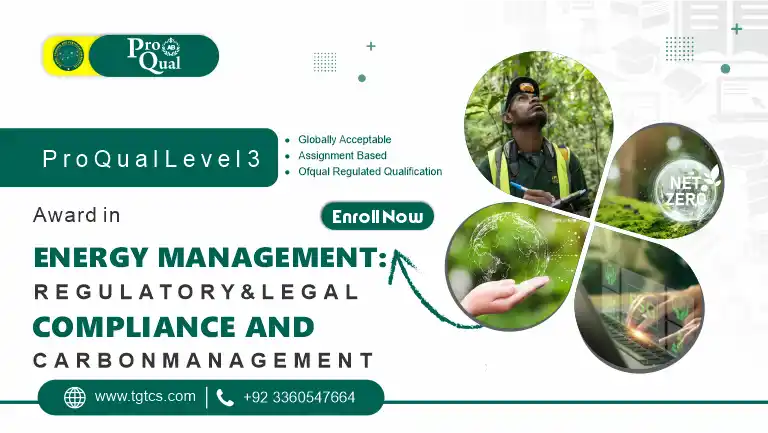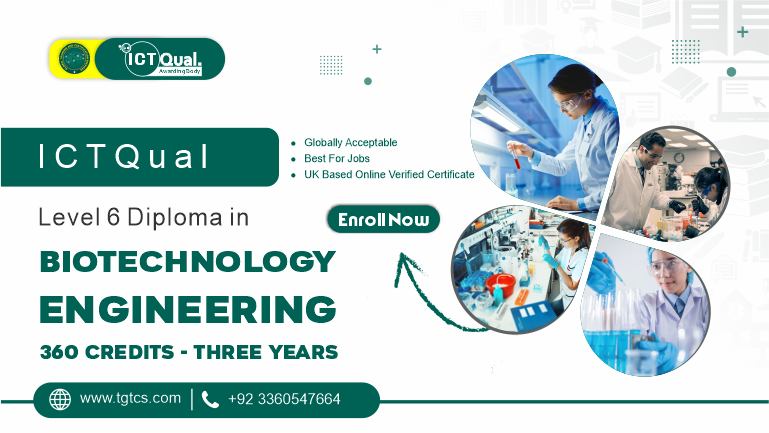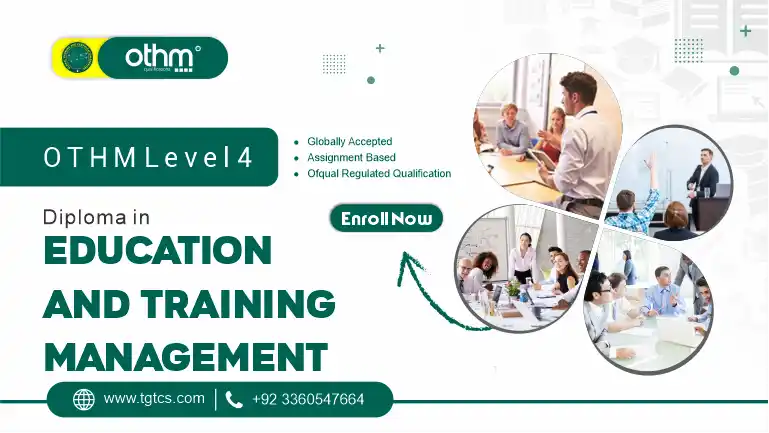OTHM Level 7 International Postgraduate Diploma in Environmental Management
Elevate Your Career with OTHM Level 7 International Postgraduate Diploma in Environmental Management!
Are you ready to make a significant impact on the world by advancing your expertise in Environmental Management? Look no further! The OTHM Level 7 International Postgraduate Diploma in Environmental Management is your gateway to a rewarding and influential career in sustainable practices.
In an era defined by unprecedented environmental challenges, the need for skilled professionals committed to sustainable practices has never been more critical. The OTHM Level 7 International Postgraduate Diploma in Environmental Management stands as a beacon, attracting individuals eager to make a meaningful impact on the planet. Let’s delve into this transformative program that not only educates but inspires the next generation of environmental stewards.
At its core, the Level 7 International Postgraduate Diploma in Environmental Management is designed to provide a profound understanding of the complex interplay between human activities and the environment. This program goes beyond theoretical knowledge, fostering a holistic approach that integrates scientific, managerial, and ethical perspectives.
OTHM Level 7 International Postgraduate Diploma in Environmental Management is a transformative journey for those passionate about safeguarding our planet. It is a commitment to becoming a steward of the environment, equipped with the knowledge and skills needed to effect positive change on a global scale. Enroll today and be part of a community dedicated to shaping a sustainable future for generations to come.
Don’t miss the chance to be a leader in the field of Environmental Management. Enroll now and take the first step towards a greener, more sustainable future.
The “OTHM Level 7 International Postgraduate Diploma in Environmental Management” is a specialized educational program designed to equip individuals with advanced knowledge and skills in the field of environmental management. OTHM, which stands for the Organization for Tourism and Hospitality Management, is an awarding body that offers a range of qualifications in various sectors, including environmental management.
This postgraduate diploma is positioned at Level 7 on the Qualifications, indicating a high level of complexity and depth in the subject matter. It is tailored for professionals and individuals seeking to enhance their expertise in environmental management, a critical discipline addressing the challenges posed by environmental issues and sustainable development.
OTHM Level 7 International Postgraduate Diploma in Environmental Management is a reputable qualification designed to deepen understanding and proficiency in environmental management, preparing individuals for roles that contribute to sustainable and responsible environmental practices on a global scale.
Enrolling in the OTHM Level 7 International Postgraduate Diploma in Environmental Management offers a range of benefits for individuals seeking to enhance their knowledge and skills in the field. Here are some key course benefits:
- Advanced Expertise: The program provides advanced knowledge and expertise in environmental management, allowing participants to gain a comprehensive understanding of key issues, challenges, and solutions in the field.
- Career Advancement: Successful completion of the diploma enhances career prospects by equipping individuals with the skills and qualifications needed for leadership roles in environmental management, consultancy, policy-making, and related fields.
- Global Perspective: With an international focus, the program enables participants to understand and address environmental challenges on a global scale. This perspective is valuable in today’s interconnected world where environmental issues often transcend national boundaries.
- Practical Application: The emphasis on practical applications ensures that participants can apply theoretical knowledge to real-world scenarios. This hands-on experience is crucial for individuals seeking to make a tangible impact in the field.
- Networking Opportunities: The course provides opportunities for networking with professionals, experts, and fellow participants in the environmental management field. Building a network can open doors to collaboration, career opportunities, and the exchange of ideas.
- Recognition and Accreditation: OTHM qualifications are widely recognized, adding credibility to the skills and knowledge acquired through the program. This recognition can be advantageous when seeking employment or pursuing further academic endeavors.
- Flexibility in Learning: The flexibility of the course structure accommodates different learning preferences. Whether through traditional classroom settings, online learning, or a combination of both, participants can tailor their study approach to fit their lifestyle and commitments.
- Leadership Skills: The program often includes components that develop leadership and management skills specific to environmental issues. These skills are essential for those aspiring to lead environmental initiatives, projects, or organizations.
- Current Industry Relevance: The curriculum is designed to reflect current trends, emerging issues, and best practices in environmental management. Staying abreast of industry developments ensures that participants are well-prepared to address contemporary environmental challenges.
- Personal and Professional Growth: Beyond academic knowledge, the course contributes to personal and professional growth by fostering critical thinking, problem-solving, and decision-making skills. These qualities are valuable in various aspects of life and work.
- Contribution to Sustainable Practices: Participants are empowered to contribute to sustainable practices and environmental stewardship. This sense of responsibility aligns with the increasing global focus on sustainability and corporate social responsibility.
The OTHM Level 7 International Postgraduate Diploma in Environmental Management offers a comprehensive and beneficial educational experience, combining theoretical knowledge with practical skills to prepare individuals for impactful roles in environmental management.
The learning outcomes for the OTHM Level 7 International Postgraduate Diploma in Environmental Management are designed to ensure that participants acquire a well-rounded and advanced understanding of key concepts, skills, and competencies in the field of environmental management. Here are specific learning outcomes that participants can expect from the course:
- Demonstrate Advanced Knowledge:
- Acquire an in-depth understanding of environmental management principles, theories, and concepts.
- Demonstrate advanced knowledge of global environmental issues, including climate change, biodiversity conservation, and pollution control.
- Apply Environmental Policy and Governance:
- Evaluate and apply environmental policies and governance structures at local, national, and international levels.
- Analyze the impact of policy decisions on environmental management practices.
- Integrate Sustainable Development Practices:
- Integrate principles of sustainable development into environmental management strategies.
- Develop and assess initiatives that balance environmental, social, and economic considerations.
- Conduct Environmental Impact Assessments (EIAs):
- Demonstrate the ability to conduct comprehensive environmental impact assessments for various projects.
- Evaluate the potential environmental consequences of human activities and propose mitigation measures.
- Implement Pollution Control Strategies:
- Design and implement pollution control strategies to minimize the environmental impact of industrial, agricultural, and urban activities.
- Evaluate the effectiveness of pollution control measures and recommend improvements.
- Lead Environmental Management Initiatives:
- Develop leadership skills to lead environmental management initiatives and projects.
- Collaborate with stakeholders to implement sustainable practices in various organizational settings.
- Apply Environmental Monitoring and Evaluation Techniques:
- Utilize environmental monitoring and evaluation techniques to assess the effectiveness of environmental management programs.
- Analyze data to make informed decisions regarding environmental conservation and resource management.
- Demonstrate Cross-disciplinary Knowledge:
- Integrate knowledge from various disciplines, such as ecology, economics, and social sciences, to address complex environmental challenges.
- Collaborate with professionals from diverse fields to develop holistic environmental solutions.
- Utilize Geographic Information Systems (GIS) and Technology:
- Apply GIS and other relevant technologies for spatial analysis and environmental monitoring.
- Use technology to enhance decision-making processes in environmental management.
- Critically Evaluate Environmental Research and Literature:
- Critically review and evaluate environmental research, literature, and case studies.
- Synthesize information to make informed decisions and recommendations in the field.
- Promote Environmental Education and Awareness:
- Develop strategies to promote environmental education and awareness in communities.
- Design and implement outreach programs to engage the public in sustainable practices.
- Demonstrate Ethical and Professional Conduct:
- Uphold ethical standards in environmental management practices.
- Demonstrate professional conduct in dealing with environmental challenges and stakeholders.
These learning outcomes collectively contribute to the overall goal of preparing participants for leadership roles in environmental management, where they can make meaningful contributions to sustainable practices and address the complexities of contemporary environmental issues.
The OTHM Level 7 International Postgraduate Diploma in Environmental Management is designed for a diverse range of professionals, academics, and individuals who seek to deepen their knowledge and skills in the field of environmental management. This course is well-suited for the following groups:
- Environmental Professionals:
- Individuals already working in environmental management roles who wish to enhance their expertise and stay current with industry best practices.
- Aspiring Environmental Managers:
- Those aspiring to enter or advance their careers in environmental management, including individuals with backgrounds in environmental science, biology, geography, or related disciplines.
- Policy Makers and Government Officials:
- Professionals involved in environmental policy-making, regulatory compliance, and governmental agencies looking to strengthen their understanding of environmental issues.
- Consultants and Advisors:
- Environmental consultants, advisors, and specialists seeking to broaden their knowledge base and improve their ability to provide effective solutions to clients.
- Business Leaders and Managers:
- Executives, managers, and business leaders interested in integrating sustainable and environmentally responsible practices into their organizations.
- Educators and Researchers:
- Academics and researchers in environmental science, ecology, and related fields who want to enhance their teaching capabilities and contribute to the development of sustainable solutions.
- NGO and Nonprofit Professionals:
- Individuals working in non-governmental organizations (NGOs) and nonprofits dedicated to environmental conservation, sustainable development, and climate change mitigation.
- Professionals in Related Fields:
- Individuals from fields such as engineering, urban planning, and architecture, where a solid understanding of environmental management is increasingly important.
- Corporate Sustainability Practitioners:
- Professionals responsible for corporate sustainability programs and initiatives within organizations, aiming to integrate environmental considerations into business practices.
- International Development Practitioners:
- Those involved in international development projects who want to incorporate environmentally sustainable practices into their initiatives.
- Recent Graduates:
- Graduates with bachelor’s degrees in environmental science, geography, biology, or related fields seeking to advance their education and career prospects.
- Individuals Seeking Career Change:
- Individuals from diverse backgrounds looking to transition into a career focused on environmental management and sustainable practices.
This course is tailored to accommodate professionals at various stages of their careers, offering a comprehensive and advanced curriculum to meet the evolving demands of the environmental management field. Participants benefit from gaining practical skills, in-depth knowledge, and a global perspective on addressing contemporary environmental challenges.
Mandatory Unit
- Environemt and Public
- Environmental Resource Management
- Environmental impact Assessment
- ISO 14001 EMS and Its Leagal Compliance
- Control of Environmental Degradation and Pollution
Course Overview
Course Level
Level 7
Course Units
6 mandatory Units
TQT
1200 hours
GLH
600 hours
Duration
6 to 12 Months

